Follow Up Research on Preoperational Thought Indicates That
Follow-up research on infant cognitive development suggests that mastery of object permanence. Why is it important for cells to be able to take in nutrients and excrete waste products.

Cognitive Development In Early Childhood Ppt Download
Which statement accurately reflects the findings of follow-up research on preoperational thought.
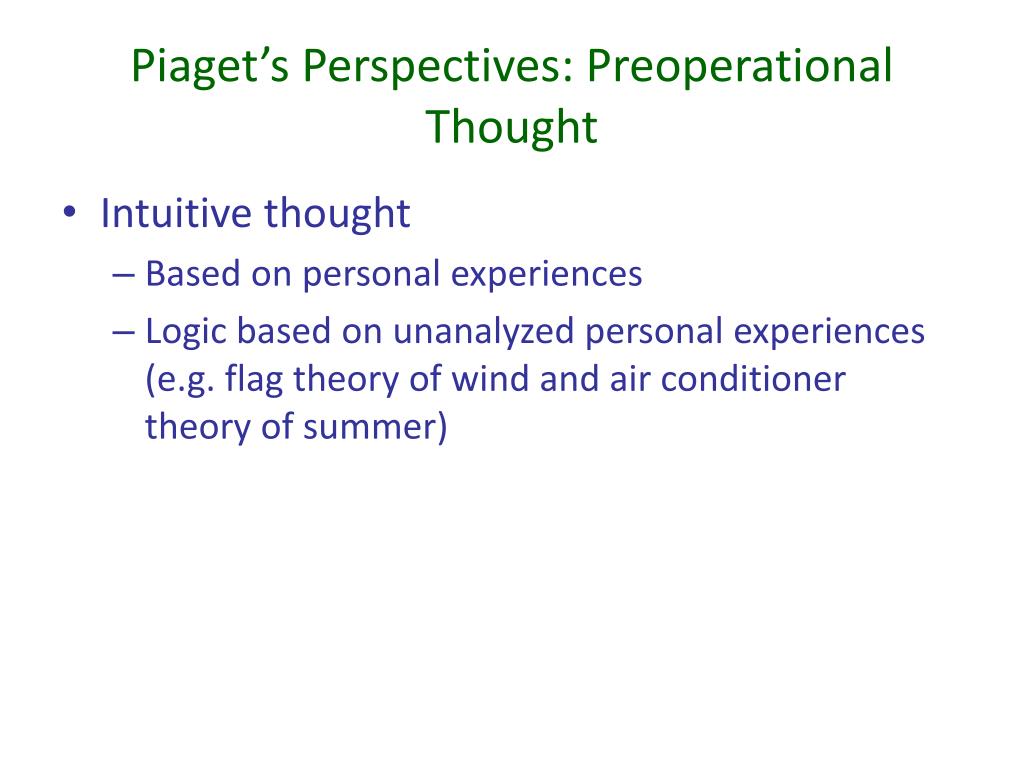
. Which of the following statements about follow-up research to preoperational thought is true. Piaget was partly wrong and partly right about young childrens cognitive capacities. Follow-up research on preoperational thought indicates that preschoolers illogical reasoning occurs mainly when topics are unfamiliar too much information is provided or facts are contradictory.
Follow-up research on preoperational thought indicates that preschoolers can successfully solve a conservation-of-number task when the task A includes only three items rather than six or seven. Follow-up research on Piagets preoperational stage indicates that most 4-year-olds understand _____. Follow-up research indicates that even though preschoolers have difficulty with Piagetian class inclusion tasks they.
Follow-up research on preoperational thought indicates that preschoolers do not display the illogical characteristics that Piaget saw when the tasks - For All Answers. First performed by more expert peers while the preschooler watches. Dressing up in.
March 14 2022 by sarah yalton. Finally it would be interesting to find out whether the LQPT even provides the opportunity to predict who will respond or who will not respond to CBAP or other therapies. Follow-up research indicates that by the second half of the first year children have formed a variety of global categories such as animals and vehicles.
This stage starts around age 2 as kids start to talk and lasts until age 7 In this stage kids start to engage in symbolic play and learn to manipulate. Piagetian problems contain unfamiliar elements or too many pieces of information for young children to handle at once preschoolers responses often do not reflect their true abilities. Follow-up research on preoperational thought indicates that answer Most 3- and 4-year-olds believe in the supernatural powers of fairies goblins and other enchanted creatures.
The most important illogical feature of preoperational thought is its. Follow-up research on preoperational thought indicates that preschoolers can successfully solve a conservation-of-number task when the task. B deals with everyday objects such as balls or dolls rather than abstract concepts.
Follow up research indicates that. Follow-up Research on Preoperational Thought. Performed by their parents rather than unfamiliar experiments C.
A combined Apgar score of _____ or better indicates that an. Research on nutrition indicates that. An unknown substance is added to a solution and the ph decreases.
Follow-up research on cognitive development indicates that _____ is present as early as 6 weeks. Follow up research on preoperational thought indicates that most 3-4 year olds believe in the supernatural powers of fairies goblins and other enchanted creatures Over time children rely on increasingly effective _____ to solve problems. Performed with their own toys rather than unfamiliar objects B.
These findings challenge Piagets assumption that. They get little experience considering other peoples thoughts. Piaget also missed many naturally occurring instances of effective reasoning by preschoolers-Egocentric Animistic and Magical Thinking.
Follow-up research on preoperational thought indicates that preschoolers do not display the illogical characteristics that Piaget saw when the tasks. Up until now the preoperational behaviors or thoughts of chronically depressed patients have usually only been described in case studies or in the form of external observations. Follow-up research on the preoperational stage indicates that ________.
Spread the loveThe preoperational stage is a developmental phase in which kids learn to represent things in the mind. The preoperational stage is known as the second stage in Piagets theory of cognitive development. Follow-up research on preoperational thought indicates that Most 3- and 4-year-olds believe in the supernatural powers of fairies goblins and other enchanted creatures.
Preschoolers ability to reason by analogy indicates that they can think logically about cause and effect in familiar contexts. C is performed by their parents rather than unfamiliar experimenters. Follow- up research on preoperational thought indicates that preschoolers do not display the illogical characteristics that Piaget saw when the tasks are A.
The preoperational stage which takes place on average between the ages of 2 and 7 is when your childs learning about the world by. Follow-up research on preoperational thought indicates that preschoolers do not display the illogical characteristics that Piaget saw when the tasks are _____. Up to 24 cash back Follow-Up Research on Preoperational Thought Researchers have challenged Piagets view of preschoolers as cognitively deficient Many Piagetian problems contain unfamiliar elements or too many pieces of information for young children to handle at once thus their responses do not reflect their true abilities.
Research with English-speaking Western samples has shown that conversations about peoples thoughts predicts childrens understanding of false beliefs. The substance is best described as.

Cognitive Development In Early Childhood Ppt Download

Cognitive Development In Early Childhood Ppt Download

Cognitive Development In Early Childhood Chapter 7 From

Cognitive Development In Early Childhood Ppt Download

Piaget S Preoperational Stage Of Cognitive Development Lifespan Development

Piagets Theory Of Cognitive Development Outline Piagets Theory

Ppt Cognitive Development In Early Childhood Powerpoint Presentation Id 522327

Cognitive Development In Early Childhood Chapter 7 From
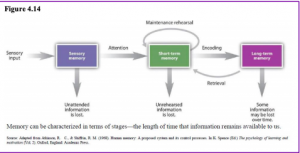
Chapter 14 Cognitive Development In Early Childhood Human Behavior And The Social Environment I
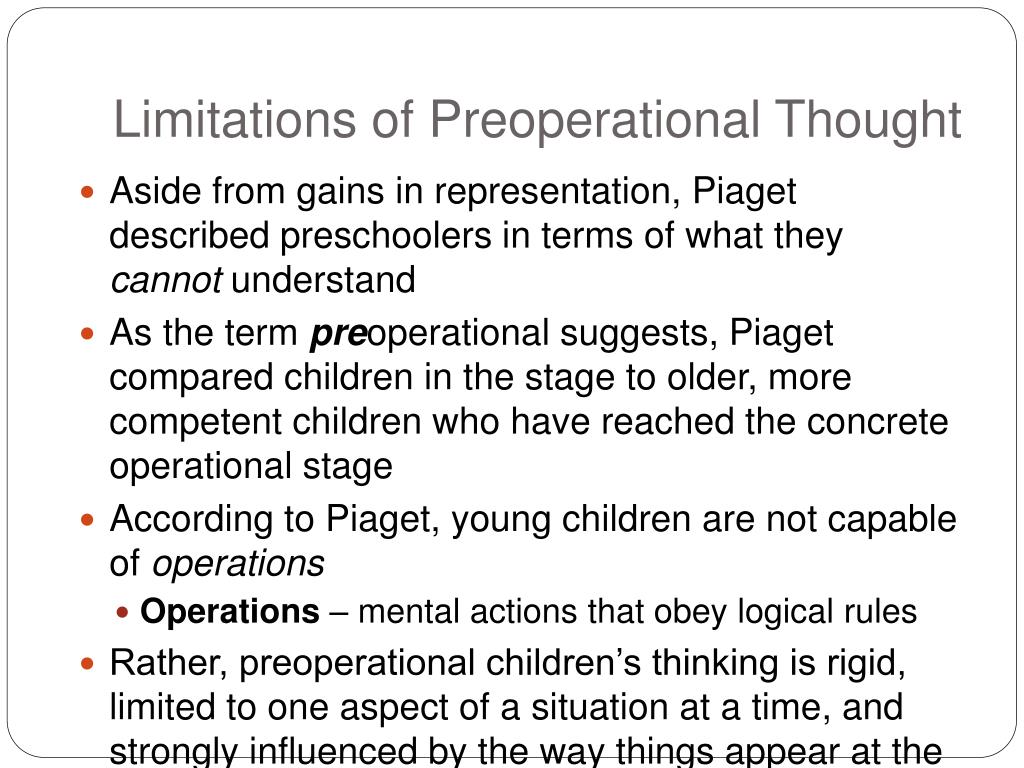
Ppt Cognitive Development In Early Childhood Powerpoint Presentation Id 522327
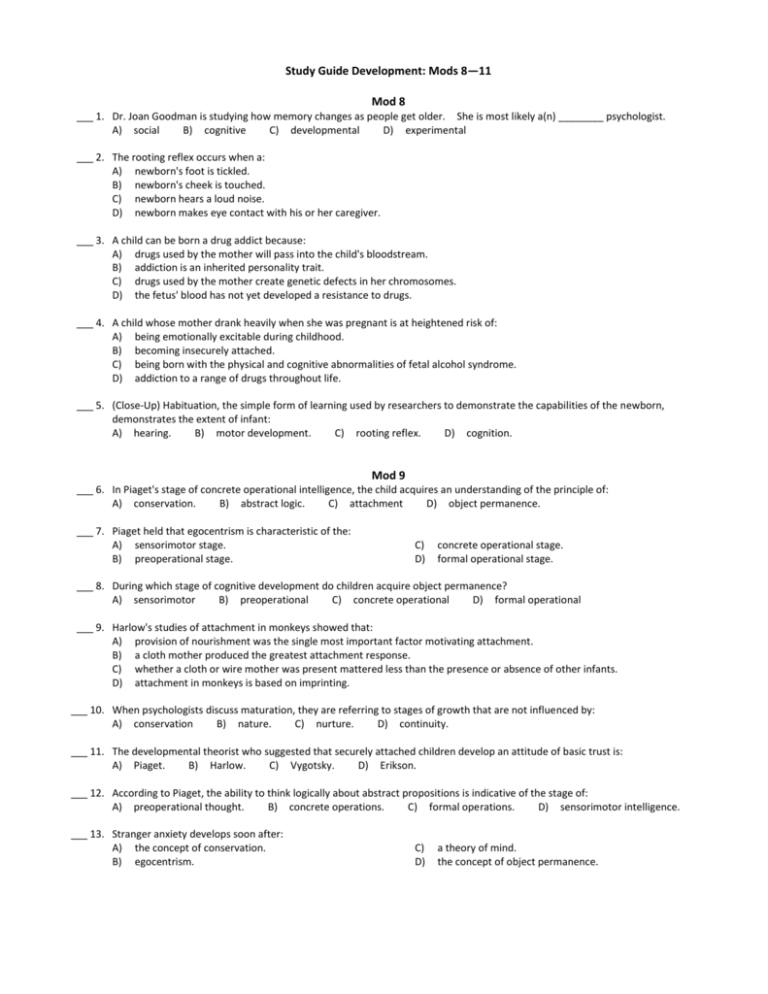
Study Guide Development Mods 8 11 Mod 8 Mod 9

Piaget S Theory Of Cognitive Development Ppt Download

Ppt Cognitive Development In Early Childhood Powerpoint Presentation Id 4020183

Cognitive Development In Early Childhood Chapter 7 From

Cognitive Development In Early Childhood Chapter 7 From

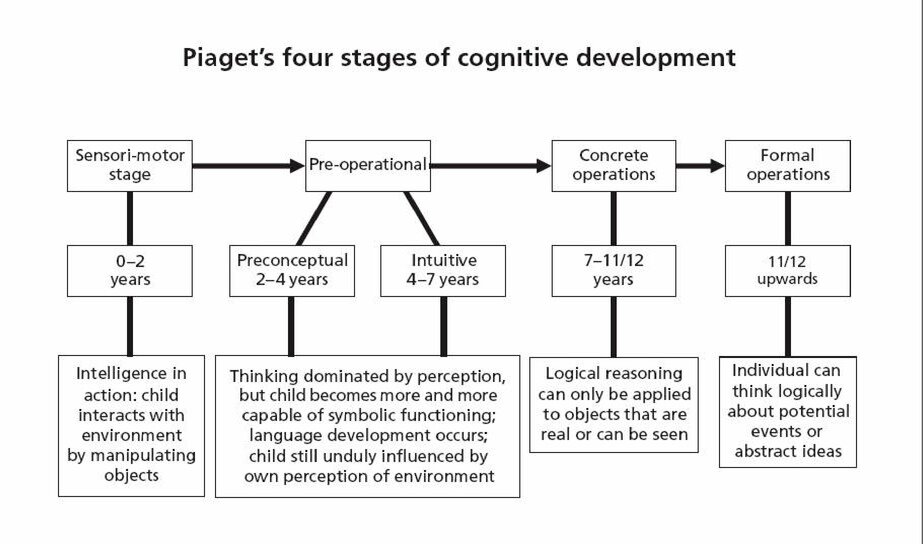


Comments
Post a Comment